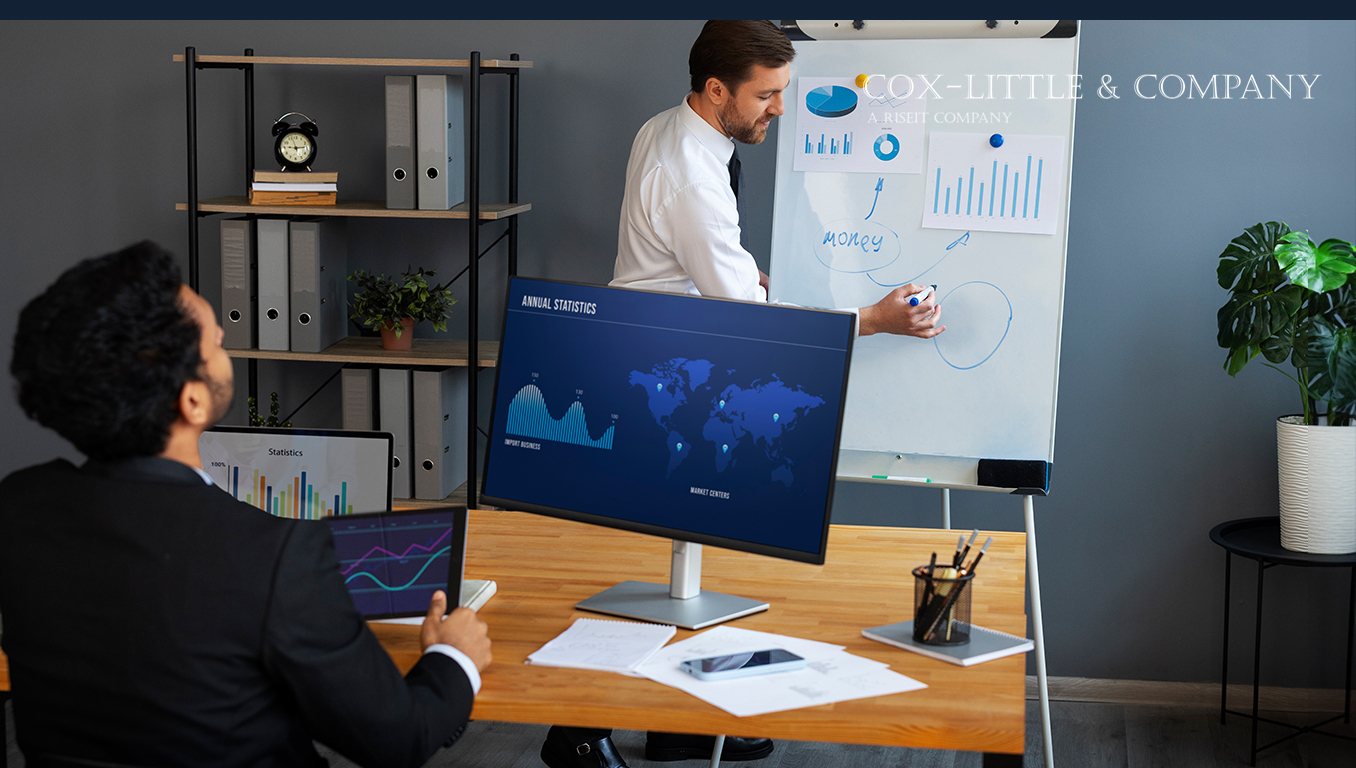
A cloud-based enterprise resource planning (ERP) platform can deliver exceptional ROI across all business sectors and industries. But before making an investment in a cloud custom ERP software platform, it’s important you understand exactly how this sort of interface works and how a cloud platform differs from other options.
What is an ERP Software Platform and How Does it Benefit Your Business?
At its core, an enterprise resource planning software platform serves as the digital core of a company’s operations. ERP platforms are intended to automate and centralize business processes related (but not limited to) the following.
- Supply Chain Management
- Manufacturing
- Logistics
- Accounting
- Human Resources (HR)
- Marketing
- Sales
ERP software increases efficiency and productivity by centralizing a company’s data into a central database. This centralized data pool is really key because it allows businesses to leverage their data in new, powerful ways.
Consider this scenario: prior to deploying an ERP platform, a company may have multiple, disparate software platforms that are used on a daily basis. These mission-critical software systems may get the job done, but each platform is an island so to speak. Data is not necessarily shared amongst the stand-alone software platforms and integration between the interfaces may be spotty at best.
This creates an environment whereby various departments and groups within the company are isolated, along with their data. Cohesion, unification, and information-sharing all require intention and planning. Needless to say, in a fast-paced business world, this doesn’t always happen. The net effect is missed opportunities and a company that falls short of its true potential.
Now consider the company that hires a company to develop a custom cloud ERP software platform. All of the company’s stand-alone software platforms are replaced and centralized into a single, unified interface that sends data into a central database.
An ERP platform naturally lends itself to more robust information-sharing and collaboration between a company’s various departments. More importantly, the centralized data stores provide company leaders, stakeholders, and analysts with cross-departmental insights. Well-designed ERP software usually includes a dashboard that displays metrics and analytics, with the ability to run customized reports that allow you to visualize data with ease.
With the ability to view data from across all departments in a single platform, company leaders are empowered. This “big picture” perspective can make all the difference between a company that’s struggling to succeed and the business venture that’s exceeding expectations.
What’s the Difference Between Cloud ERP and Traditional ERP?
Recent years have seen a shift away from traditional ERP, with most companies opting for cloud ERP platforms. Traditional ERP systems use an on-premise server, whereas cloud ERP systems are based in the cloud and typically use a Software as a Service (SaaS) model.
In the case of traditional ERP solutions, there’s the cost of the on-premise servers and all of the maintenance and oversight that those servers require. The company is responsible for its own security, maintenance, and upgrades, resulting in a fairly significant overhead. Scalability can be a problem because it requires more resources such as the purchase of additional servers, hiring more ERP professionals, and so forth.
Traditional ERP platforms with on-premise servers do allow for full and complete control over all aspects of the system and its security. Most companies do not need this degree of control, but there are some organizations within the financial sector and government that represent the exception to the rule.
Cloud ERP is far more appealing to many businesses due to the lower cost, greater scalability, and overall flexibility of this model. The ERP software operates from a cloud-based server that’s maintained by the service provider. The cloud platform usually oversees general aspects of security, system updates, and server maintenance, but customizations are typically achievable for companies that need more robust security, custom server configurations, etc.
Cloud ERP customers are typically billed on a monthly basis. While it is a recurring expense, it is a cost that aligns with actual resource usage. Conversely, traditional ERP carries the cost of maintaining an entire data center with server resources that may never be fully utilized.
Additionally, most cloud platforms offer a discount to customers who pay in advance to reserve server resources for a longer time frame (i.e., 12 months, 24 months, etc.)
Scalability is a big advantage of cloud ERP solutions. Unlike an on-premise data center, the cloud offers unlimited resources on an on-demand basis. There is no barrier for the company that suddenly requires more server resources, making it easy to scale up or down as needed. This spells tremendous agility. Compare to traditional ERP, where a company would need to expand its data center to accommodate growth and expansion. This requires pre-planning and significant expense, making it virtually impossible to achieve the sort of agile scalability that you can achieve with cloud ERP. Downsizing with traditional ERP is equally ineffective in terms of cost. A company can leave extra server resources in place, despite the inefficiency. They can always sell their hardware for a fraction of what they paid. Or the business can simply unplug servers, pushing them into a corner to gather dust — just in case they’re needed again in the future. None of these options is an efficient one.
Putting the Power of Cloud ERP to Work for Your Company
Change is scary, but cloud ERP holds the potential to transform your business in dramatic ways. The ability to centralize a company’s operations into a single software interface can spell greater productivity and insightful data metrics. The ability to analyze data from across your organization is certain to bring new insights to company leaders.
At Cox-Little, we know how intimidating it can be to select and deploy “big” technologies such as cloud ERP. Our access to world-class ERP consultants means you have the best consultants available to guide your business through the process of evaluating your needs as a business to finding the right IT professionals for the development of cloud ERP solutions. Contact Cox-Little today to find out what our cloud ERP consultants and IT professionals can do for your business.
[/fusion_text][/fusion_builder_column][/fusion_builder_row][/fusion_builder_container]





Leave A Comment